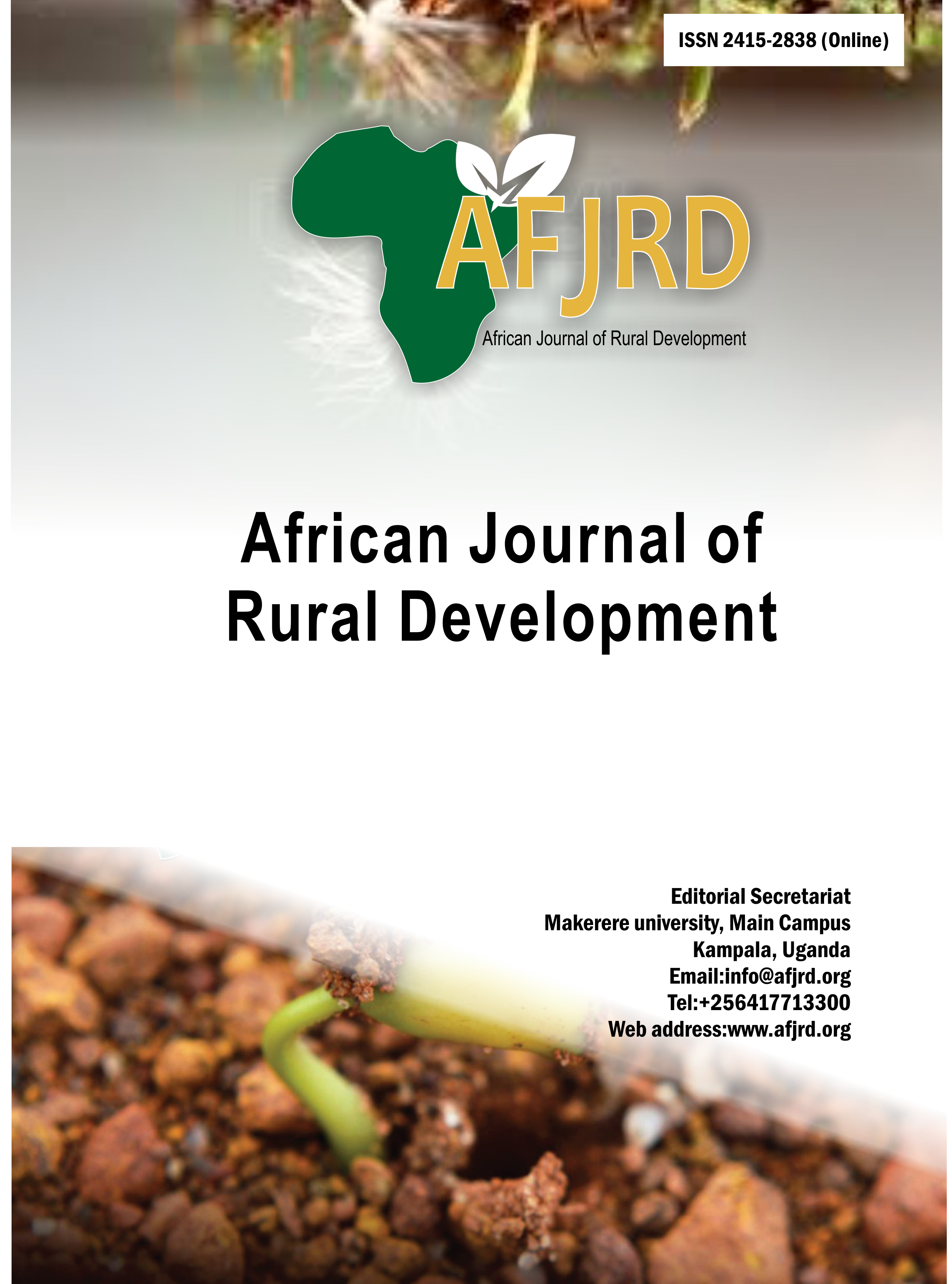Gendered assessment of Science, Technology and Innovation ecosystem: Case study of Agricultural Research and Training Institutions in Mali
Main Article Content
Abstract
Availability of qualified human capital in sufficient quantity is necessary for the development
and exploitation of science, technology and innovation. Mali, like many other African countries
is striving to grow a requisite pool of skilled science, technology and innovation professionals
but there is a dearth of information on the gender gaps at country level. Therefore, we conducted
a gender-based assessment to map the status of science, technology and innovation upon
which capacity development at higher education institutions will be premised. Primary and
secondary data were collected and analysed qualitatively and quantitatively. The study looked
at the following indicators of the status of science, technology and innovation: human capital,
decision making, and research and development, while analysing the policy environment.
All the indicators assessed exhibited large gender imbalance in favour of men. Within the
agricultural research and training institutions, women are largely under-represented [15%].
Among women researchers, only 8% were active in 2018 compared to 92% for men. Eighteen
percent of the staff involved in decision making were women compared to 82% for men.
Among the active researchers, very few [6%] accessed science, technology and innovation
information, regardless of gender indicating that this is a general issue that must be tackled
at all level. To correct the gender gap in the agricultural training and research institutions,
a capacity building program based on a countrywide policy of mainstreaming gender with
incentives for girls in education, starting from the level of preschool, to primary, secondary,
school, to higher education should be considered.
Article Details

This work is licensed under a Creative Commons Attribution 4.0 International License.
